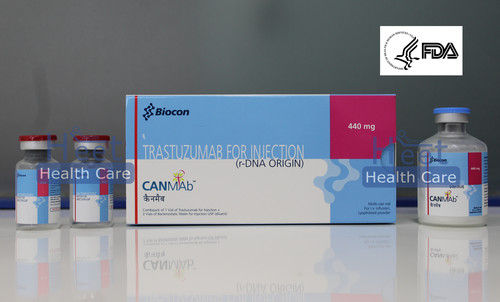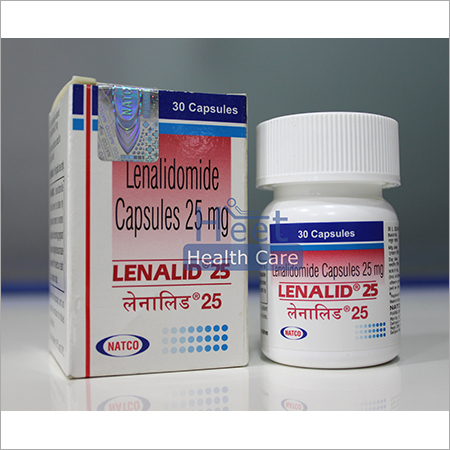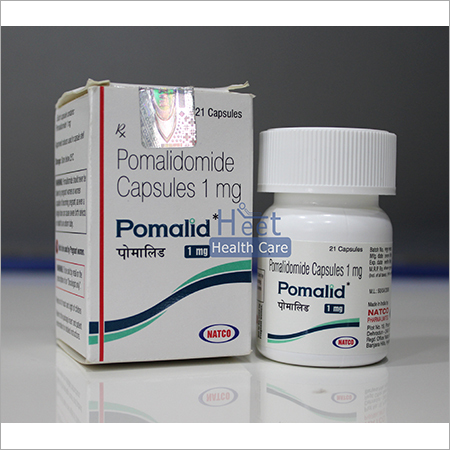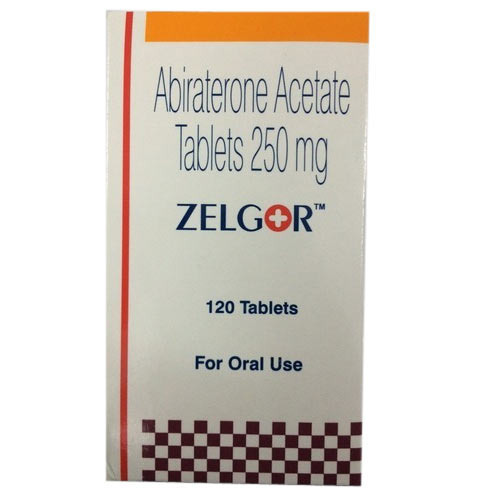Anti Cancer Medicine
Price 30000 INR/ Unit
Anti Cancer Medicine Specification
- Dosage Form
- As Per Suggestion
- Origin
- India
- Feature
- Other
- Ingredients
- Other
- Application
- Other
- Storage Instructions
- Cool & Dry Place
- Shelf Life
- 2 Years
Anti Cancer Medicine Trade Information
- Minimum Order Quantity
- 1 Box
- FOB Port
- Delhi, Mumbai
- Payment Terms
- Letter of Credit (L/C), Letter of Credit at Sight (Sight L/C), Paypal, Western Union, Telegraphic Transfer (T/T), Cash in Advance (CID), Cheque, Cash Advance (CA)
- Supply Ability
- 10000 Boxes Per Month
- Delivery Time
- 7 Days
- Packaging Details
- 1 Vial per box
- Main Export Market(s)
- Australia, North America, Eastern Europe, Western Europe, Africa, Central America, Middle East, South America, Asia
- Main Domestic Market
- All India
- Certifications
- US FDA, WHO GMP
About Anti Cancer Medicine
Anti-cancer drugs, sometimes referred to as chemotherapy drugs or anticancer drugs, are a broad category of treatments used to treat cancer. By interfering with cancer cells' DNA synthesis, cell division, or particular signalling pathways, these medications aim to target and prevent the growth and spread of cancer cells. They can be given by a variety of ways, including intravenous infusions, injections, and oral tablets. To achieve the best therapeutic results, anti-cancer medications are frequently combined with surgery, radiation therapy, or immunotherapy. The type of cancer, its stage, and the patient's condition all influence the medication choices and treatment plan. These drugs may have adverse effects, but they are carefully monitored by medical specialists to ensure the best possible patient care.
Features of Anti Cancer Medicines:
2. Different Drug Classes: There are numerous anti-cancer medications that fall under various classes, allowing for customised treatment plans based on the kind and stage of cancer.
3. Combination Therapies: To improve the efficacy of cancer treatments, these drugs may be used in conjunction with other cancer therapies such surgery, radiation therapy, or immunotherapy.
4. Route of delivery: To provide flexibility in therapy delivery, anti-cancer medications are available in a variety of formulations, including oral tablets, intravenous infusions, and injections.
5. Dosage Modification: Based on the answers of each patient, healthcare practitioners can modify the dosage of anti-cancer medications, reducing side effects while preserving therapeutic efficacy.
Anti Cancer Medicines Benefits:
1. The ability of anti-cancer medications to kill cancer cells or stop their proliferation, which results in tumour reduction or removal, is its main advantage.
2. Increased Survival Rates: The usage of these medications has helped increase survival rates for several cancer types.
3. Anti-cancer medications can provide palliative care for people with advanced cancer, reducing symptoms and enhancing quality of life.
4. Early-Stage Treatment: These drugs are used as adjuvant therapy in some malignancies to stop the spread of the disease following surgery.
5. Control of Metastatic Cancer: Anti-cancer medications can prevent the spread of cancer to other body parts (metastasis), hence extending patient life and enhancing disease management.
6. Neoadjuvant Therapy: These drugs are occasionally used as neoadjuvant therapy to reduce tumour size prior to surgery or radiation treatment.
7. Personalised Approach: Oncologists can modify treatment regimens based on the particular cancer kind, stage, and personal characteristics of the patient, assuring the best and most appropriate care.
8. Complimentary Medicine Synergy: Anti-cancer medications can produce synergistic effects when used with other cancer treatments, improving treatment outcomes.
9. Ability Cure: These medications have the ability to cause cancer remission in some patients, which presents the possibility of a cure.
10. Research & Innovation: Anti-cancer drug developments and ongoing research are broadening the range of available treatments and enhancing patient outcomes.
Anti-cancer medications can have major positive effects, but they may also have negative consequences that need to be carefully handled by medical professionals in order to improve patient care and treatment outcomes. The use of these medications necessitates competence, and patients and their oncologists should work together to decide on the best course of treatment while taking into account each patient's circumstances and treatment objectives.
Anti Cancer Medicines Applications:
1. Treatment for Cancer: Breast cancer, lung cancer, colon cancer, prostate cancer, leukaemia, lymphoma, and ovarian cancer are just a few of the many cancers that are treated using anti-cancer medications.
2. Adjuvant Therapy: These drugs are frequently used as adjuvant therapy following surgery or radiation to eliminate any cancer cells that may still be present and lower the chance of cancer recurrence.
3. Neoadjuvant Therapy: Before surgery or radiation, anti-cancer medications may be used in some circumstances to shrink tumours and make them more amenable to operation.
4. Palliative Care: In advanced cancer stages, anti-cancer medications are used to treat symptoms, slow the growth of tumours, and enhance patients' quality of life.
5. Targeted Therapy: Some anti-cancer drugs are made to target particular molecular abnormalities in cancer cells, resulting in a more individualised and efficient course of treatment.
6. Combination Therapy: To improve treatment outcomes, they are used in conjunction with other cancer treatments including radiation therapy or immunotherapy.
What are the Side Effects of Anti Cancer Medicines:
1. Anti-cancer medications have the potential to suppress bone marrow, which can result in anaemia, a higher risk of infections, and bleeding issues.
2. Numerous anti-cancer medications might result in nausea and vomiting.
3. Hair Loss: Alopecia, or temporary hair loss, is a side effect of some drugs.
4. Patients may feel weak or worn out while receiving treatment.
5. Constipation or Diarrhoea: Digestive issues like constipation or diarrhoea could happen.
6. Skin Reactions: Some people may encounter skin issues like rashes or photosensitivity.
7. The Hand-Foot Syndrome is a skin reaction that manifests as redness, swelling, and peeling of the palms and soles and is brought on by some medications.
8. Some anti-cancer medications have the potential to cause neurological side effects, such as peripheral neuropathy.
9. Infertility: In some situations, these medications might lead to infertility that is either temporary or permanent.
10. Cardiac Toxicity: Some anti-cancer medications may have an impact on the circulatory system and the heart.
11. Liver and Kidney Toxicity: Some medications can harm the liver or the kidneys.
12. Anti-cancer medications have been shown to decrease the immune system, increasing the risk of infections in patients.
Healthcare professionals should regularly monitor patients taking anti-cancer medications to manage any adverse effects and guarantee treatment safety. To get the best results while minimising side effects, using these medications requires knowledge and personalised treatment strategies. To enhance the overall experience of cancer treatment, healthcare professionals collaborate closely with patients to optimise treatment schedules and offer supportive care.


Price:
- 50
- 100
- 200
- 250
- 500
- 1000+
More Products in Anti Cancer Medicine Category
Gemcitabine Injection Ip 200 Mg
Price 450 INR / Box
Minimum Order Quantity : 100 Boxes
Feature : Other
Shelf Life : 2 Years
Dosage Form : As Per Suggestion
Origin : India
Lenalid 25 Mg Capsules
Price 4000 INR / Box
Minimum Order Quantity : 1 Box
Feature : Other
Shelf Life : 2 Years
Dosage Form : As Per Suggestion
Origin : India
Pomalid Pomalidomide 1mg
Price 9000 INR / Box
Minimum Order Quantity : 10 Boxes
Feature : Other
Shelf Life : 2 Years
Dosage Form : As Per Suggestion
Origin : India
Zelgor Tablets
Price 18000 INR / Bottle
Minimum Order Quantity : 1 Bottle
Feature : high Fermentation Activity
Shelf Life : 1 Years
Dosage Form : Tablet
Origin : India
 |
HEET HEALTHCARE PVT. LTD.
All Rights Reserved.(Terms of Use) Developed and Managed by Infocom Network Private Limited. |

 Send Inquiry
Send Inquiry English
English Spanish
Spanish French
French German
German Italian
Italian Chinese (Simplified)
Chinese (Simplified) Japanese
Japanese Korean
Korean Arabic
Arabic Portuguese
Portuguese Send Inquiry
Send Inquiry




